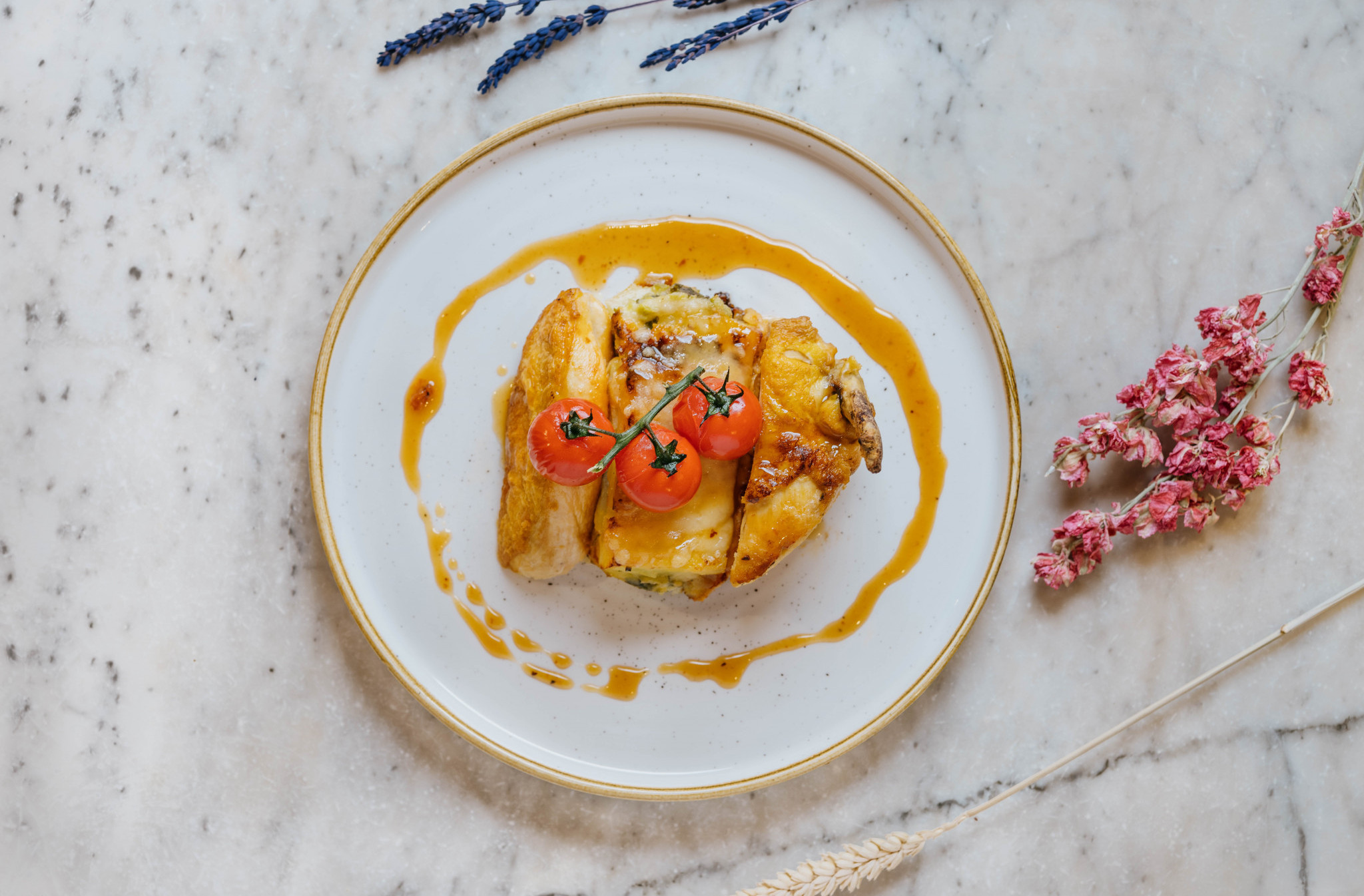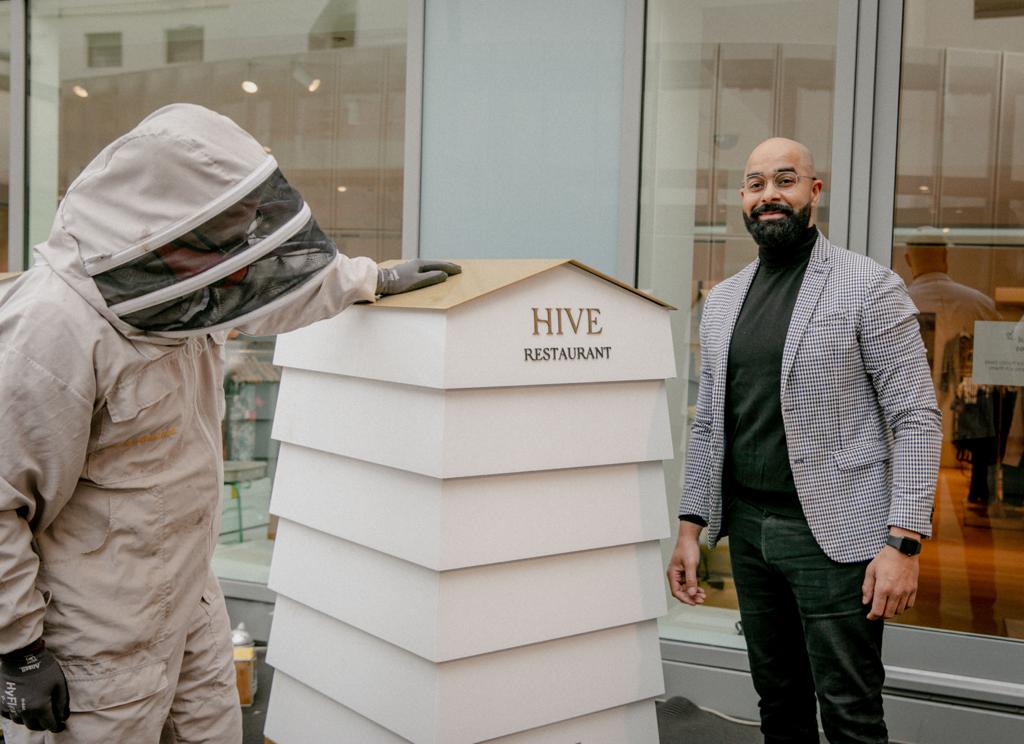A taste of honey
While honey is a food used in kitchens across the world, it is rarely the focal point of restaurant dishes. That is, until now: a new restaurant at Selfridges is putting the spotlight back on bees and the sweet nectar they produce
Words by Reyhaan Day

HIVE looks to educate diners on the deliciousness, diversity and benefits of honey through a menu of dishes that put the ingredient on a pedestal – while drawing attention to the importance of bees.
The concept was created by Khalid Samata, a honey expert who grew up in the Pyrénées, surrounded by a landscape that is perfect for the production of honey.
But it wasn’t so long ago that Samata discovered his passion for honey. “I fell in love with it a few years ago when I tasted buckwheat honey and
that experience marked the beginning of my evolving journey. I became obsessed with how monofloral honeys are made.
“I used to work for the French Embassy, and for a year, I spent almost every weekend back home in the French Pyrénées, discovering its buzzing ecosystem, meeting with local experts and learning about bees, flowers, honey and its use and benefits to health and wellbeing.”
Samata became so knowledgeable and passionate about this unique ingredient that he was soon working with some of London’s top chefs to introduce the best honey to their dishes.
“My obsession with monofloral honey led me to partner with Michelin-starred chefs to create cheese and honey pairings, as well as some of the finest desserts that are now served across the best restaurants in London. Some of the people I’ve worked with include Pierre Gagnaire at sketch; Jean-Georges Vongerichten at The Connaught; and Claude Bosi at Bibendum.
“Thanks to those collaborations, Claude Bosi recently hosted a special one-night-only event at HIVE, where we had guests enjoy innovative ingredient pairings brought to life by Bosi’s cooking technique.
We did sweet and sour lobster with this season’s radish and linden honey, and English strawberries with cream and montagne.”

“Bees have lived on this planet for 80 million years…they are critically important in preserving our planet and saving humanity from hunger.”
Samata says that finding the perfect flavour combinations is central to HIVE’s distinctive honey-based dishes.
“Our chefs marry honey with dishes where the flavours play off each other; for example, chestnut honey is great with our breakfast granola, and forest honey is a fantastic sauce on our roasted chicken. Our signature dessert is made with yuzu chocolate, warm cream, mascarpone and caramelised chestnut honey from the Pyrénées, and presented in the shape of a glamorous yellow beehive.”
As well as flavour, honey offers a range of benefits for our bodies and our minds. “It has fantastic remedial qualities, such as reducing anxiety, calming insomnia and combating fatigue,” says Samata. “Honey is full of antioxidants and is a great energy booster, making for a healthier alternative to sweeteners and added sugars. It really is a wonder ingredient.”
The restaurant even has its own hives that offer a home to 100,000 bees that pollinate the local area, and also provide honey used in the restaurant.
Samata says that bees are key to the ecosystem; and given that bee populations are dwindling, it is more important than ever to help bolster their numbers.

“As bees become an endangered species, with great quality fields also being under threat, our unique honeys are becoming rarer to find, turning into luxury products. At HIVE, we want to educate our guests on the history of bees, including recent events that have made them so vulnerable.
“Bees have lived on this planet for 80 million years and are an indispensable link for biodiversity; they enable pollination, contributing to nearly three quarters of the plants that produce 90 per cent of the food
globally. They are critically important in preserving our planet and saving humanity
from hunger.”
Perhaps living la dolce vita is more important than we think.
Selfridges, 400 Oxford Street

